Our departure from Cape Town was scheduled to be on Thursday 17th, but it was (initially) delayed a day. Unfortunately, our hotel had no availability on the night of the 17th, and we had to move to another place. The delay was caused largely by the decision to load stone which was needed for some urgent repairs to the harbour wall on Tristan.
We were to travel on the ship called the Baltic Trader; eventually we had the call to be ready for our transport to the ship on the Sunday morning (20th) at 7.30, which was later extended to 9.00 for a ship departure of 11.00 – ish. With us in the hotel was a geography teacher heading to the island on a 6-month contract. When we arrived at the ship, we saw our baggage loaded, and then we were joined by the new Administrator and his wife and we were all taken off to Immigration.
Here there were some anxious moments when the Immigration officer refused to accept the passenger list that he was given – he was right, the list that was offered was for a previous sailing! Anyway, the matter was resolved quickly and with good humour, and we felt that we were a step closer to our departure to Tristan da Cunha.
Once the main engine was started up, we had feelings of “all is well” which lasted quite briefly, in fact until the engine was shut down again! There was a flurry of activity among the ship’s crew, and we learned that the cooling water intake was obstructed. The diving company arrived promptly, and before long they had the obstruction cleared – large pieces of plastic 1 tonne bags, oddments of rope, and bizarrely a crisp packet. This collection of plastic debris was almost inevitable, given the huge amount of plastic that was drifting around inside the harbour.
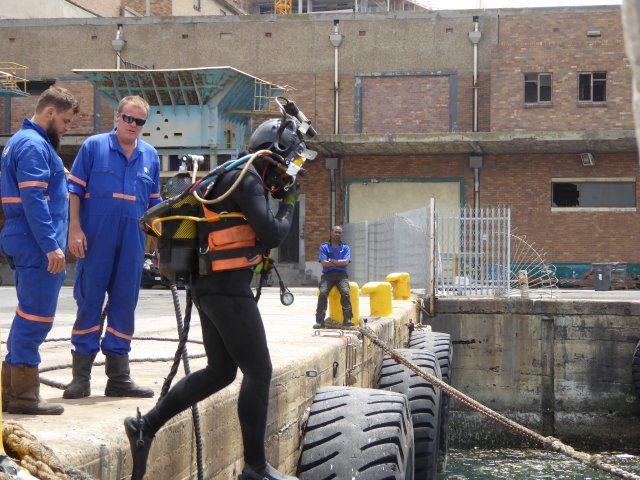
Two small tugs arrived, and we were given a ‘dead pull’ straight away from the harbour wall, to distance us from the worst of the floating plastic before the main engine was re-started. Finally, at around 4.30 in the afternoon, we left the harbour, leaving an angry tug-boat crewman contemplating his hawser which had had to be cut as a result of a jam on board our ship.
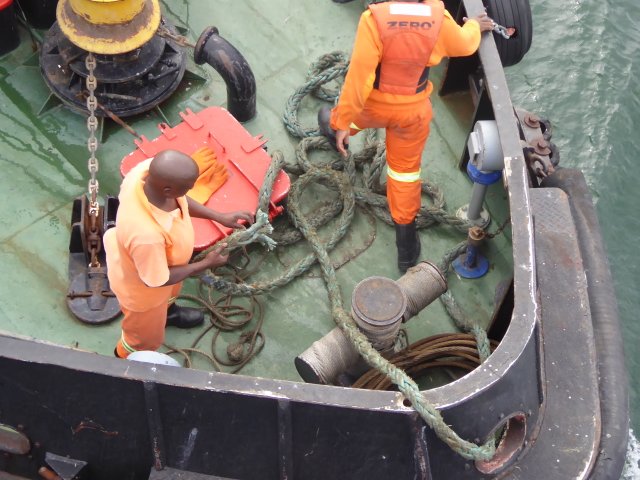
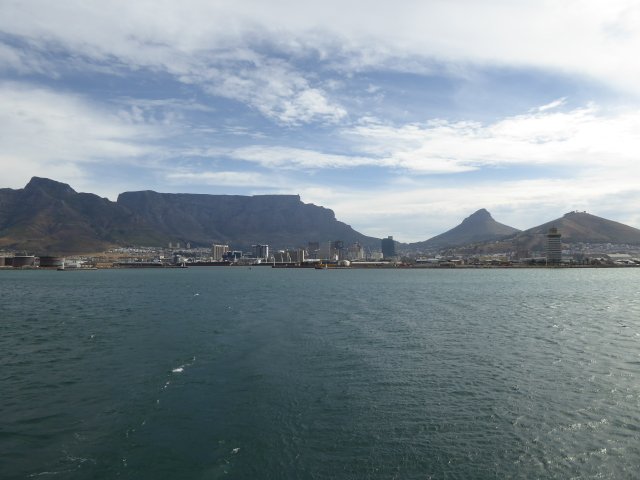
The weather and hence the sea state when we left was challenging, particularly for the first day out, with a quartering sea causing an uncomfortable motion, but day by day it moderated and by Wednesday it could be described as perfect, with a gentle following breeze, an almost cloudless sky, and a sharp horizon.
On the Tuesday we went past a group of whales – perhaps six or eight of them heading in an easterly direction. I think that altogether there were five days when whales were sighted, but none of them were very close. The further west we cruised, the more we were accompanied by birdlife, including yellow-nosed albatross and wandering albatross to remind us that we were deep into the Southern Atlantic.
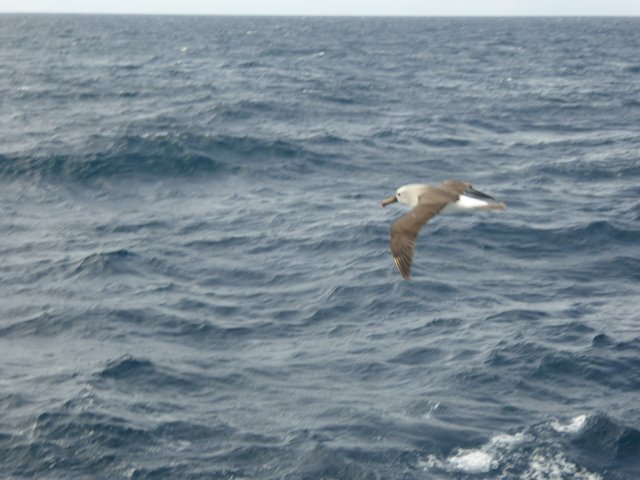
Although for some dizzy hours we managed 8 knots, we spent most of the time with head winds and our speed was reduced even as slow as 3.1 knots at times – it is an awful long way to go at that speed!
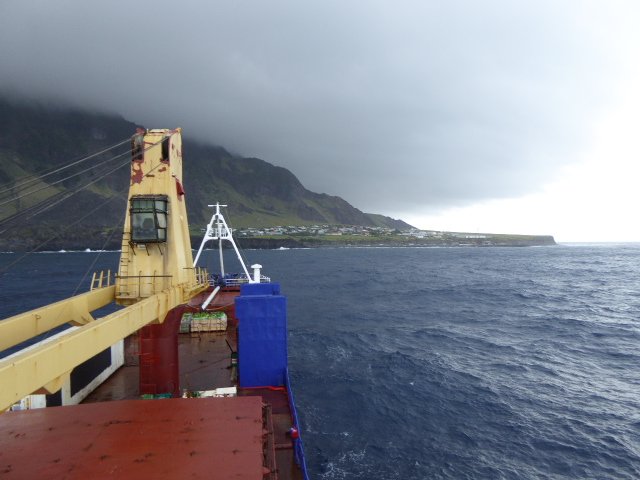
Early in the morning of the 30th we finally made it to the island. We had read about the unloading arrangements, and expected the manoeuvre to be exciting. It was! In groups of six the passengers were ushered into a metal box about the size of a confessional (not that I would know!) A hook from the ship’s derrick was attached, and we were hoisted way up into the air and over the side of the rolling ship. We were then landed on a motorised pontoon that was waiting alongside. The object of the exercise was for the crane operator to judge the touch-down of the confessional with the pontoon going down in the swell, to give us a soft landing. In our case he mis-judged the landing and we arrived on the pontoon with a spine-jarring crunch.
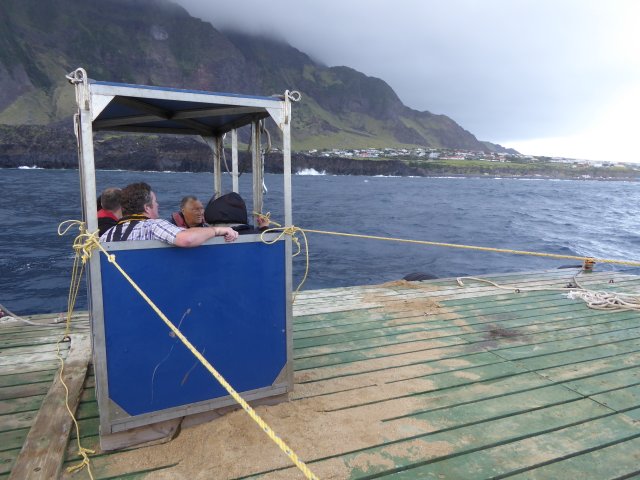
The unloading and getting ashore gave us our first experience of Tristanian boat handling and stevedoring skills, which were impressive to say the least. Details to follow in later blogs.
I will outline some details of our arrival on shore later, but there is a quick foot-note here. We were so lucky to get off the ship when we did – that morning the wind rose once again and unloading had to be called off. It was a week before unloading was able to restart and before we saw our luggage.
